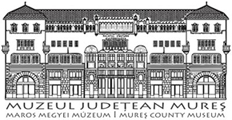Marisia - Maros Megyei Múzeum Évkönyve 36/2. (2016)
Florin Bengean: Aspecte din viaţa preoţimii ortodoxe romăne din Transilvania între anii 1865-1918
Marisia XXXVI Aspecte din viata preotimii ortodoxé románé din Transilvania Tntre anii 1865-1918 Florin BENGEAN Aspects from the life of the Romanian Orthodox clergy of Transylvania between 1865-1918 Summary Throughout the period 1865-1918, the Transylvanian Romanians, along with the Orthodox priests within this area, carried on a lively activity of political organization concerning the national liberation movement and national unity, they largely concentrated their energy on the field of national cultural life, culture being one of the most powerful means of national assertion, efforts had been made in very adverse circumstances, to advance under a material and economic aspect, but the most important thing is that they triggered great moments to express the struggle and national solidarity, which brought closer the supreme moment of fulfilling the state unity; participation in various forms, in the war of 1877-1878 in order to win the Romania's state independence, extensive social-political movement in the last two decades of the nineteenth century, known as the Memorandum movement, participation in the first years of The World War I of tens of thousands of volunteers from Transylvania under the Romanian flag in order to free the Romanian territories that were under foreign rule and to achieve the unitary Romanian national state. And when they could freely express themselves, they decided it in a Grand National Representative Assembly- the unification of Transylvania to the motherland, Romania. Cuvinte cheie: der, Transilvania, Räzboiul de Independent, Miscarea memorandistä, Marea Unire Keywords: clergy, Transylvania, The war of independence, The Memorandum movement, Tthe Great Union. Impletindu-§i propria lor viatä cu viata poporului in mijlocul cäruia T§i Tndeplineau misiunea lor mäntuitoare, slujitorii altarului au Tnteles sä fie prezenti Tn toate mcercarile poporului román sustinändu-l §i Tmpärtä§ind näzuintele lui la о viatä liberä §i dreaptä. Prin pästrarea „légii strämo§e§ti” Tn popor a credinfei cre§tine, clerul román a mentinut treazä §i a dezvoltat con§tiinta unitätii nationale. Identificändu-se cu pästoritii lor — de care nu se deosebeau prea múlt nici la vorbä, nici la port, nici ca nivel de viatä, slujitorii Bisericii Romane s-au fäcut „tuturor toate’’. Au fost dascäli pentru copii, doctori pentru bolnavi, judecätori pentru Tnvräjbifi, apärätori ai drepturilor celor asuprifi, iar cänd Tmpilärile §i nedreptäfile Tntreceau puterea de räbdare a poporului §i acesta se räzvrätea, ei deveneau §i luptätori §i cäläuze Tn lupta pentru sfänta dreptate a poporului. Dat fiind rolul cu totul remarcabil pe care l-а avut Biserica Romänä Tn mentinerea träiniciei neamului, existenta Bisericii Románé libere, independente, autonome, care are legea ei, slujbele ei, ränduielile ei, datinile ei — izvora din vointa poporului román de a se elibera §i de jugul social, §i de cel national, dar §i de cel bisericesc, 15
